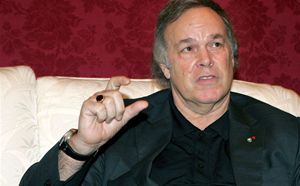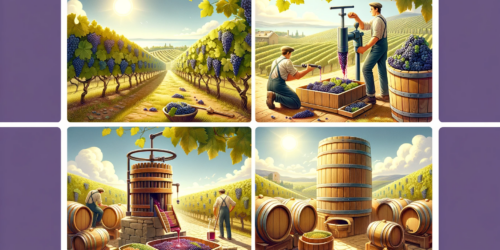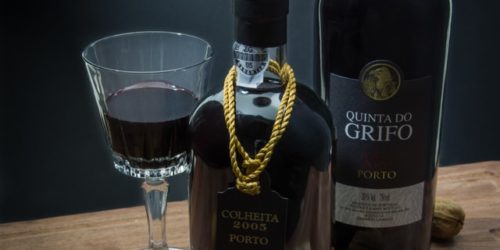Robert Parker: Can’t live with him, can’t live without him
Robert Parker
Can’t live with him, can’t live without him
By Geordie Clarke / Contributing Editor
 Only in the wine industry could the fortunes of others rely so heavily on one person. While the financial markets have the triumvirate of the major credit rating agencies, when it comes to fine wine, Robert Parker is arguably alone at the top.
Only in the wine industry could the fortunes of others rely so heavily on one person. While the financial markets have the triumvirate of the major credit rating agencies, when it comes to fine wine, Robert Parker is arguably alone at the top.
So influential are his scores that Parker is a man who both the wine trade and many consumers love to hate. His scores are so important that he can help winemakers and wine merchants make small fortunes. But at the same time there are those who believe the wine world is too heavily influenced by his American tastes and that wines are therefore becoming overly ‘Parkerised’, in other words being made to please his palate and earn higher points.
While some attack such wines as being oaky, high in alcohol and heavily extracted, the man himself says he would prefer the term to mean a wine that comes from a previously underachieving estate that has turned itself around and is now making quality wine.
Yet despite all this criticism, there was no shortage of hype in the wine market as Parker’s in-bottle assessment of the 2010 Bordeaux vintage was released on the last day of February.
Naturally, the most important question being asked was, which wines would achieve the all-important ‘perfect’ score of 100 Parker points? Would Pichon-Baron join the club? Would Parker be more conservative in his approach than rival American critic James ‘I’m 100 on that’ Suckling? The focus seemed to be too heavily swayed towards the perfect wines rather than the vintage as a whole.
It should be noted that all this excitement is not simply about celebrating good wine. It’s also about money, because if a perfect Parker score does anything, it increases a wine’s value more than any other critic’s review.
 Parker’s success is a result of being in the right place at the right time. The Wine Advocate was launched just as demand for his straight-shooting, America-centric wine reviews was taking off. Several decades later, his loyal readership has helped confirm him as the final word on wine for a large chunk of the market.
Parker’s success is a result of being in the right place at the right time. The Wine Advocate was launched just as demand for his straight-shooting, America-centric wine reviews was taking off. Several decades later, his loyal readership has helped confirm him as the final word on wine for a large chunk of the market.
One of his greatest qualities is the fact he is a straight-shooter who cares little about pedigree, reputation, price or terroir. In an article published by the The Atlantic, Parker was quoted as saying, “What I’ve brought is a democratic view. I don’t give a shit that your family goes back to pre-Revolution and you’ve got more wealth than I could imagine. If this wine’s no good, I’m gonna say so.”
Now, step back for a moment and imagine any other industry where so much clout rested in a single person’s hands. As a convenient analogy, I was going to explain how the world would be in a much worse place if financial institutions had only one rating agency, say Moody’s, to assess their creditworthiness. But then it occurred to me that, despite there being three major agencies and a swathe of smaller ones, we still ended up in one of the biggest financial messes the world has ever seen. So that comparison is out.
In fact, there are few other markets where one person’s opinion can count for so much. What if we assessed art in the same way? Would Damien Hirst’s embalmed shark achieve the same as Duchamp’s Fountain? And what would happen if they achieved higher scores than a Rembrandt? A Da Vinci? Or even Vincent van Gogh’s Irises?
All of this makes me wonder if the points system has gone a step too far. Wine tasting is as subjective as art appreciation, which means attaching a score that everyone can agree upon is nearly impossible.
But this is not to say critics like Parker are obsolete. Even though we live in an era when databases like CellarTracker and social media sites like Twitter make it possible to crowdsource opinions from consumers, those views are not necessarily reliable. When we read Robert Parker or Jancis Robinson and have an idea of how they judge wines, we have a good idea of what to expect.
Except for one thing. As someone who wants to explain wine in a no-nonsense, democratic way, Parker has a habit of writing in confusing language full of metaphors and platitudes. Look no further than his reviews of two ‘perfect’ wines from the Bordeaux 2010 vintage:
Le Dome: “Ethereal in its elegance and finesse…has extraordinary purity and richness as well as a blockbuster finish of close to a minute, yet is so flawless, seamless and compelling.”
La Violette: “Awesome aromatics…quintessential elegance married to almost unbridled density of fruit, all presented in a flawless and seamless concoction of full-bodied power, elegance and purity.”
Can something that is already “pure” in fact be “extraordinarily” pure as well? And how can a wine be seamless?
Don’t even get me started on “quintessential elegance married to almost unbridled density of fruit” because, frankly, life is too short. I would rather skip ahead to drinking the stuff.





